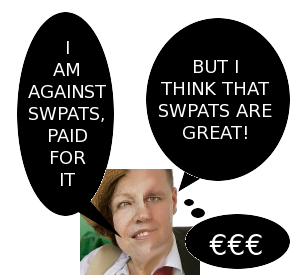

When Facebook got sued by Yahoo some called it an "open source" patent war, which makes no sense. After all, both companies are in Microsoft's pocket and other than lip service they give almost nothing to Open Source these days. Nevertheless, as one writer puts it:
Yahoo! said it believes 16 patents held by the Internet giant have been used in Facebook’s data centers and servers, according to a regulatory filing made by Facebook.
The social media company alerted the market of its share price for its upcoming IPO, which valued the company between US$85bn and $85bn yesterday. In its document filed with the US Securities and Exchange Commission, however, it sought to alert shareholders of possible risks that could affect the company.
You may have heard this week that Abraham Lincoln filed a patent for Facebook in 1845. Rest assured, it’s as untrue as it sounds. While the hoax ran wild around the Internet, the stories about it tended to get one piece right: Lincoln held a patent for an invention, making him the only president with that distinction. In 1849, he received a patent for a flotation system to help dislodge boats from sandbars. As Smithsonian magazine described in 2006, Lincoln traveled on the Mississippi River and the Great Lakes in his younger years and experienced the hazard of unpredictable sandbars.
We're told, repeatedly, by some patent system supporters that the whole point of the patent system is really about "disclosure." Of course, this is a myth for a variety of reasons. The biggest, of course, is that in many industries patents are both completely useless to learn anything from and are never used to learn how things are done. This is especially true in software, where you will never hear about anyone learning how to do anything from a patent. A few years back, the US Patent and Trademark Office (USPTO) started publishing nearly all patent applications 18 months after the application came in. This is a pretty common practice around the globe. If a patent system is about disclosure, this makes sense -- and in theory, allows for people to point out prior art or protest certain patents before they're issued. There is a current exception for patents deemed in the interest of national security to keep secret (such as patents on nuclear energy).